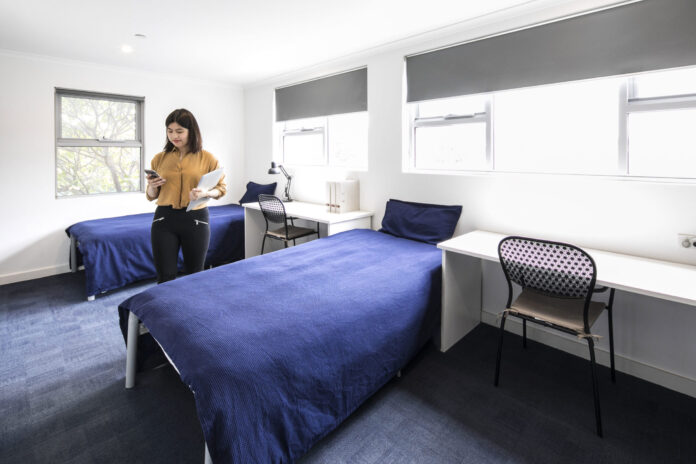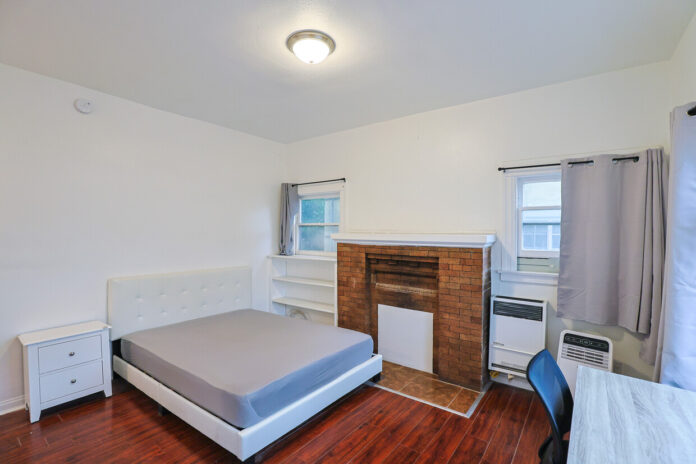Sydney is one of the most desirable cities for international and domestic students alike, offering world-class education, vibrant cultural experiences, and a unique lifestyle. However, living in Sydney can be quite expensive, especially when it comes to accommodation. Finding affordable housing options is crucial for students who want to maintain a balanced lifestyle without breaking the bank. Here’s a detailed guide on how students can secure budget-friendly accommodation in Sydney while managing other living costs effectively.
1. Start Early and Explore Multiple Options

The first step to finding Sydney student accommodation is to start your search early. The earlier you begin, the more options you’ll have at your disposal. Relying solely on a single source might limit your choices, so make sure to explore multiple platforms and listings. Websites like Gumtree, Flatmates.com.au, and UniLodge are great places to start. Additionally, local Facebook groups often feature room listings where students can find shared accommodations that are significantly cheaper than renting a private apartment.
2. Consider Living in Outer Suburbs
While living close to the university may seem convenient, it often comes with a hefty price tag. Students on a tight budget should consider suburbs farther from the city center, where rent is generally lower. Suburbs like Ashfield, Campsie, and Lakemba offer more affordable rental options while still being accessible via public transport. The slight inconvenience of a longer commute can be offset by the significant savings in rent.
3. Opt for Shared Accommodation

Sharing a house or apartment with other students is one of the best ways to cut down on living costs. Not only does it split the rent, but it also divides the costs of utilities and internet bills. Shared accommodation also provides a great opportunity to build a social network and make friends in a new city. Look for listings that offer rooms in shared houses or consider teaming up with other students to rent a place together.
4. On-Campus Accommodation
Many universities in Sydney offer on-campus housing options, which are often more affordable and convenient. These accommodations are usually located within walking distance of the campus, saving you transportation costs. While on-campus housing can sometimes be competitive, it’s worth applying as early as possible. Besides saving on rent, living on campus allows you to be more involved in university activities and reduces the time spent commuting.
5. Take Advantage of Student Discounts
Sydney has a range of student discounts available for transport, entertainment, and groceries. Applying for a Student Opal card gives you access to cheaper public transport fares, which can significantly reduce your weekly expenses. Additionally, many supermarkets, restaurants, and retail stores offer discounts for students, so always ask if there’s a discount available when shopping.
6. Negotiate Rent and Inclusions
It’s not widely known, but rental prices in Sydney can sometimes be negotiated, especially if you’re planning to stay long-term or if the property has been on the market for a while. Don’t hesitate to discuss the rent with the landlord or agent and see if there’s any flexibility. Some landlords may also be willing to include utilities like water and internet in the rental price, which can further help you stick to your budget.
7. Be Smart with Your Utilities and Internet Choices
Utility bills can add up quickly, so it’s important to choose energy-efficient appliances and be mindful of your usage. Consider opting for prepaid plans for electricity and gas, which allow you to monitor and control your usage better. Additionally, compare different internet service providers to find the most cost-effective plan. Some providers offer special student deals or discounts for longer contracts.
8. Look for Furnished Apartments

Furnishing an apartment from scratch can be expensive, so it’s often more economical to rent a place that’s already furnished. Many landlords in Sydney offer fully or partially furnished rooms, which can save you the hassle and cost of buying furniture. Even if a place isn’t fully furnished, you can check out second-hand furniture shops or online marketplaces like Facebook Marketplace and Gumtree to find affordable options.
9. Short-Term Leases and Subletting
If you’re not planning to stay in Sydney for a full year, consider short-term leases or subletting options. Subletting a room or apartment from someone who is temporarily leaving the city can be cheaper than signing a long-term lease. It also offers more flexibility if you’re unsure of your long-term plans. Be cautious, though, and make sure everything is legal and documented.
10. Join Housing Co-ops and Student Communities
Housing co-operatives (co-ops) and student communities provide affordable living arrangements where members share responsibilities like cooking and cleaning. Co-ops often have lower rent because they operate on a not-for-profit basis. Additionally, living in a community-oriented environment can help you build strong social connections and support networks during your studies.
11. Budgeting and Financial Planning
Even after securing affordable housing, managing your finances wisely is key. Creating a monthly budget that accounts for rent, utilities, groceries, and other expenses can help you avoid unnecessary debt. Use apps like Splitwise to track shared expenses with roommates, or budgeting apps like YNAB (You Need a Budget) to keep your finances in check. Sticking to a well-planned budget ensures that you can comfortably cover your living expenses while still enjoying your time in Sydney.
12. Meal Prep and Cooking at Home

Eating out frequently can quickly drain your budget, especially in a city like Sydney where dining prices are high. Preparing your meals at home is a cost-effective alternative that can save a substantial amount of money. Plan your meals in advance, buy groceries in bulk, and take advantage of student discounts at supermarkets like Coles and Woolworths. Simple practices like meal prepping can reduce your daily expenses and allow you to allocate more funds toward rent or leisure activities.
13. Use Public Transport or Cycle
Sydney’s public transport system is extensive, with buses, trains, and ferries connecting the city’s suburbs. A Student Opal card provides discounted fares, making it the most budget-friendly way to travel. For those who live close to their university, cycling is another affordable and eco-friendly option. Many universities also provide secure bike parking facilities, making it easier to commute without relying on public transport.
Last Words
By taking a strategic approach to accommodation, budgeting, and resource management, students can make their time in Sydney both enjoyable and financially manageable. From exploring outer suburbs to leveraging student discounts, every little bit of planning can contribute to a more comfortable and budget-friendly student experience.









